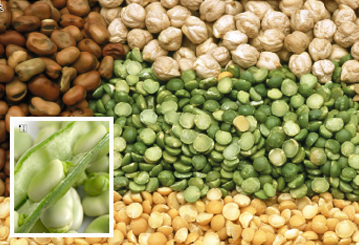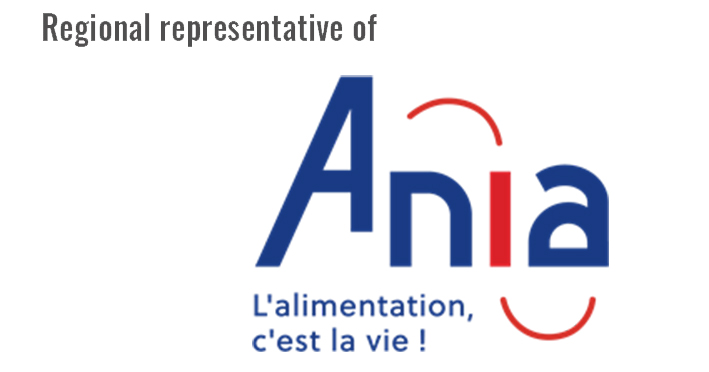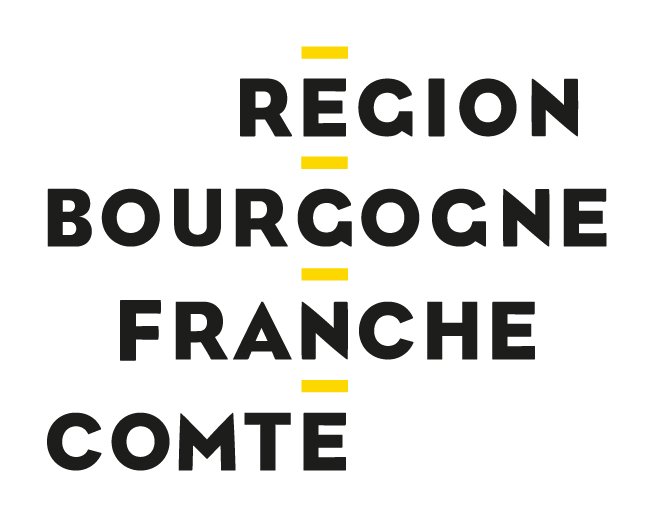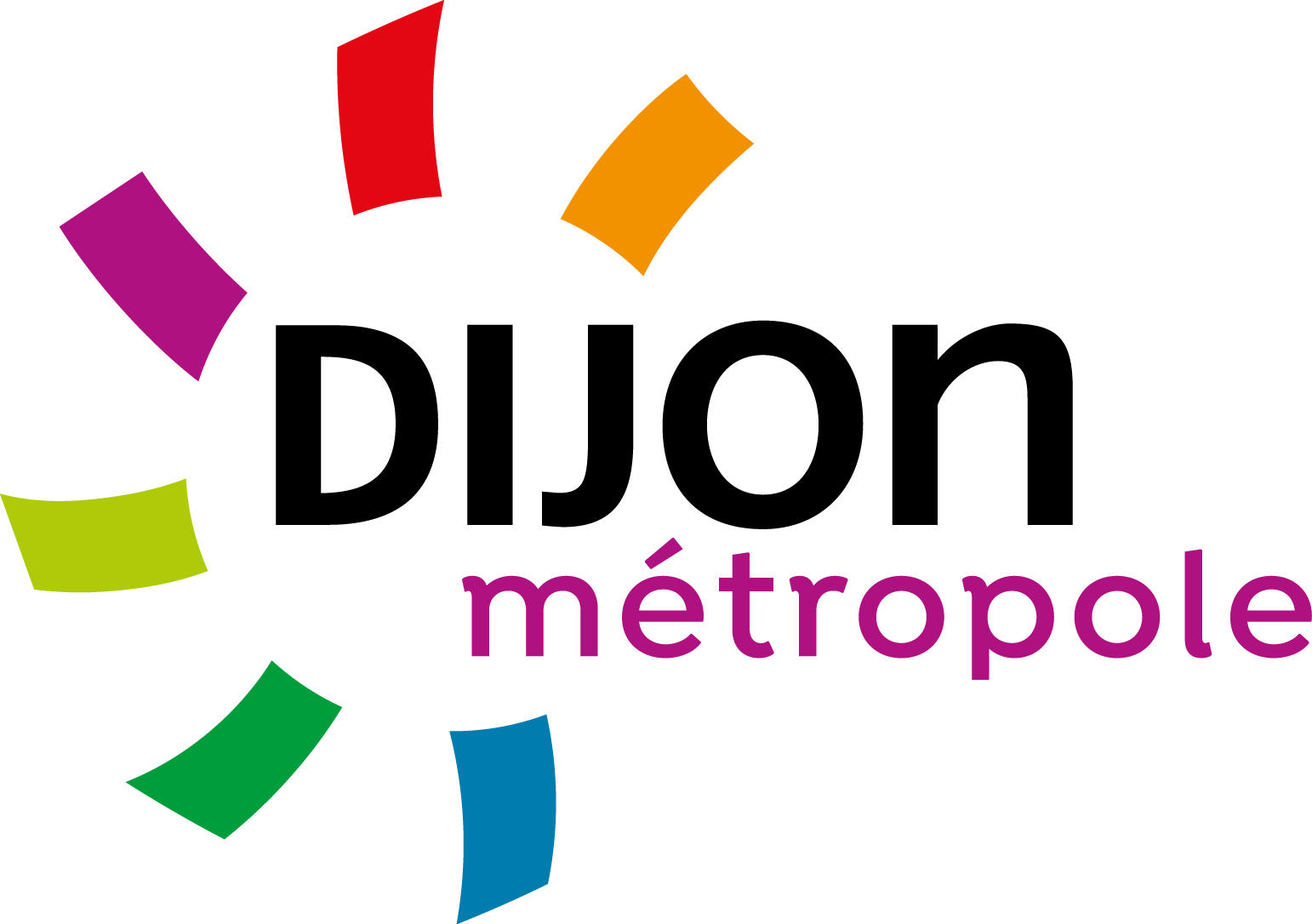30 Jan 2015
Plant proteins: 3 Vitagora projects develop food industry applications for pulses
 Pulses represent an important source of plant protein for animal and human food as well as fixing nitrogen for better soil health. In a context where the yields of other crops are stagnating (rapeseed, wheat, barley etc.) and can lead notably to soil exhaustion, pulses are appearing to be a promising alternative.
Pulses represent an important source of plant protein for animal and human food as well as fixing nitrogen for better soil health. In a context where the yields of other crops are stagnating (rapeseed, wheat, barley etc.) and can lead notably to soil exhaustion, pulses are appearing to be a promising alternative.
For this reason, Vitagora is helping a number of R&D projects to emerge These projects address the critical issue of plant proteins with a "farm to table" approach, across the value chain.
Leg’up: structuring a new industry sector
In order to incorporate pea and bean proteins into human food production a certain number of checks need to be lifted, so as to facilitate the large scale production of these pulses. Their yields are often unreliable, and processing techniques need to be optimised for producing concentrated protein-rich ingredients for incorporation in human food products.
"These checks are, for the most part, linked to the taste characteristics of these proteins. We have been able to identify problems related to a "bean" taste. In other words, a "grassy" or bitter flavor," observes Gérard Million, Scientific Director of Dijon Céréales, an agricultural cooperative based in Burgundy. It is from this context that Leg'Up emerged, a four-year project launched with the help of Vitagora and involving such companies as Sotexpro, Cosucra and Mondelez, as well as the expertise of a number of scientific groups. "For example, INRA Dijon has already accumulated a world-class catalogue of of genetic varieties of fava beans and peas. They also have the scientific knowledge based on 40 years of testing," Gérard Million reminds us.
This accumulated knowledge will be invaluable for this project whose first aim is to study the genetics of the plants, in order to develop a dozen or so varietals of peas and fava beans with less pronounced taste characteristics. Subsequently, Leg'Up will also be looking into more gentle processing methods that also limit oxidation and the apparition of taste defects. "Our more or less long term goal is to end up with a structured industry sector with a couple of improved varieties that can be recognised and added to the official varietal register," he explains.
Peamust: increasing and stabilising pea yields
Feed pea is currently the major grain pulse crop in France. But the development of this crop has been hindered by yield instability, which contributes to farmers' lack of confidence in pea as regards to their income. Disease, insect predation, frost, drought, excessive heat... the factors that contribute to this yield instability are many and complex in their interactions.
In order to better predict and manage yield in pulse crops, and thus increase pea crop area in Europe, the project PeaMUST aims to take advantage of high-throughput sequencing, genotyping and phenotyping technologies to tackle the multiple-stress challenge.
Coordinated by Judith Burstin, a Dijon-based INRA research director, PeaMUST brings together a total of 26 partners - 13 research teams, 9 companies and a handful of technical and professional organisations such as the Vitagora cluster. Over an exceptional duration of 8 years, the PeaMUST research program aims to develop novel pea varieties and optimise plant-symbiotic interactions for stabilised seed yield and quality, in the context of pesticide reduction and climate change, and thus providing a significant contribution to pea-breeding companies and a broad scientific and technical partnership.
A global yield increase of 5-7 q/ha is targeted, accompanied by an increase in the surface of land to be used for growing peas (from 2% to 10% of arable European farmland). The project also aims at providing new insights into the mechanisms of multi-stress tolerance through a combination of genomics, genetics, physiology, and agronomic modelling.
LEGATO: the effects of crop rotation and association on disease and pest resistance
While pulses currently take up more than 10% of arable land in China and the continent of America, they represent less than 2 % of farm land currently in use in Europe and this has been steadily decreasing over the last few decades. Faced with this observation, 29 partners from 12 European member states, including 17 public research partners and 10 companies, decided to join forces and knowledge within a European research project entitled “LEGumes for the Agriculture of TOmorrow” (Legato).
Funded by the FP7 program and launched in January 2014, Legato will run for a total for four years and presents the goal of sustainably reintroducing pulses into mainstream European agriculture. The main area of focus will be on stabilising yields, as these have difficulty competing with those of cereals.
“This project was designed to continue the research that had already been carried out within such European projects as GLIP (Grain Legumes Integrated Project),” explains Richard Thompson, molecular biologist with the Agro-ecology research unit in Dijon, and Legato project coordinator.
To increase the yields of pulses, the project partners will be studying certain plant characteristics such as their resistance to various diseases and insect pests. “We will be focusing on some plant pathologies but also pests such as the bean weevil (Bruchus) and pea-leaf weevil (Sitona lineatus). For these problems a genetic approach has not yet been used,” he explains. A part of the project will thus study the effects of crop rotation or association between cereals and pulses on disease and pest resistance.
The research carried out by the project partners promises to be of great benefit in terms of scientific advances in selection, agriculture, genomics, phenotyping and imaging. In parallel, the project’s partner companies will be developing a variety of food products (biscuits, breads etc.) using varying amounts of plant proteins in the form of pulse flours, in order to test their acceptability – most notably on the sensory plane – with a number of consumer groups.
In partnership with JFD & Co
Find out more
Are you interested in Vitagora's actions or network around the topic of Agroecology or plant proteins in consumer food products?
Contact Anne-Céline Renaud, Vitagora's International outreach officer to find out more:
anne-celine.renaud@vitagora.com
Tel.: +33 (0)3 80 78 77 41, Mob.: +33 (0)6 65 14 80 95




 Home
Home

















Share your opinion